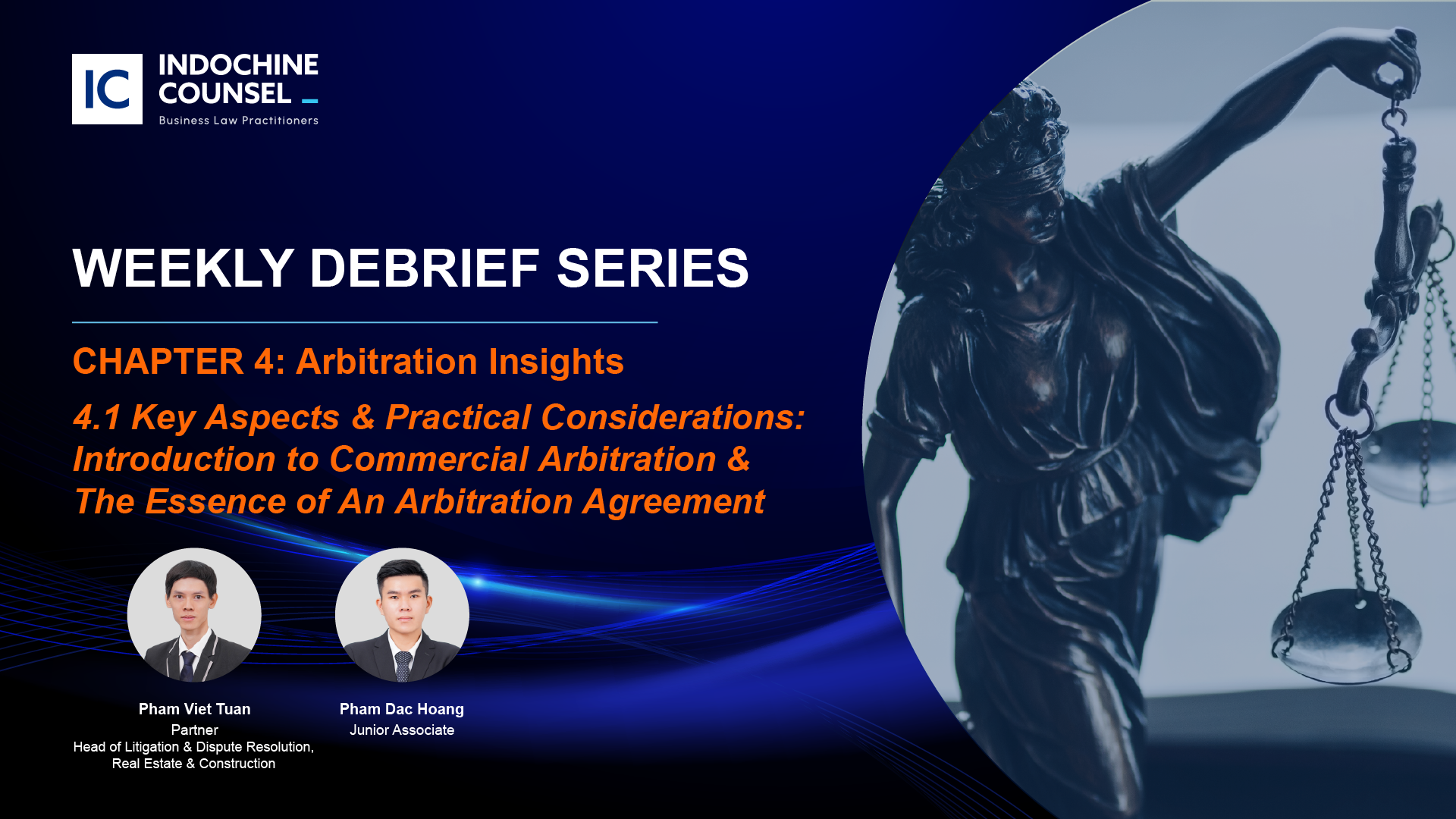
Ho Chi Minh City, 15 April 2025
“Arbitration Insights: Key Legal Aspects and Practical Considerations” is a series of 3 parts aimed at providing an overview of commercial arbitration as a dispute resolution mechanism. Through this series, we will explore key legal principles, and practical considerations for businesses and legal practitioners. Our goal is to offer insights into how arbitration can be effectively used in cross-border disputes, ensuring efficiency, enforceability, and fairness in commercial transactions.
In this first part, we will examine the reasons of why arbitration is used for cross-border transactions, the benefits it offers, and the importance of a valid arbitration agreement.
Arbitration as an Essential Dispute Resolution for Cross-Border Transactions
Commercial arbitration is an alternative dispute resolution (ADR) mechanism that operates outside the court system. It is characterized by confidentiality and generally offers a faster resolution process compared to litigation.
Arbitration proceedings are governed by key principles, including respect for party autonomy, equality of rights and obligations between parties, and confidentiality. The advantages of commercial arbitration include:
- Party autonomy: Parties have the freedom to select arbitrators who will directly adjudicate their disputes.
- Finality: Unlike court judgments, arbitral awards are final and binding, with no possibility of appeal before the court.
- Suitability for international transactions: Arbitration helps avoid potential bias from local courts in cross-border disputes while ensuring enforceability under the 1958 New York Convention, which has 164 member countries, including Vietnam.
With its advantages of confidentiality, efficiency, and wide enforcement, commercial arbitration is a common method of dispute resolution in international commercial transactions. However, for arbitration to be fully effective, a valid and clear arbitration agreement is a key condition.
Arbitration Agreements – A Foundation for Jurisdiction of Arbitration
As a general principle, an arbitral tribunal may only resolve disputes between parties if they have entered into an arbitration agreement. Therefore, parties seeking arbitration as a dispute resolution mechanism must ensure that such an arbitration agreement is in place.
- Under the Vietnamese law, the arbitration agreement must be in writing, which can be incorporated as a clause in an agreement or exist as a separate agreement. Arbitration agreement may be concluded before or after a dispute arises, provided that they comply with formal requirements.
- An arbitration agreement is independent of other contractual agreements. Consequently, the invalidity of a contract does not necessarily render the arbitration agreement invalid.
- To ensure enforceability, an arbitration agreement should clearly reflect the parties’ intention to submit disputes to arbitration, i.e., to agree on the specific name of arbitration institution, place of arbitration, number of arbitrators, etc.
- In muti-languages agreements, arbitration clauses should be carefully drafted and translated to ensure consistency and avoid interpretation issues that may affect their enforceability.
Conclusion
An arbitration agreement is not only the basis for establishing the authority of the arbitral tribunal but also the foundation for ensuring the smooth resolution of disputes. An arbitration agreement that is unclear or does not meet legal requirements can lead to disputes over jurisdiction of arbitral tribunal, causing prolonged resolving time and costs. To ensure validity and feasibility, an arbitration agreement must be prepared carefully, and you may refer to the sample clauses of the selected arbitration institution.
In the next part of the Arbitration Insights series, we will present in detail the important contents to note when drafting an arbitration agreement.
—
Disclaimer: This series is for informational purposes only and does not constitute legal advice. While we strive to provide accurate and up-to-date insights, the content herein should not be relied upon as a substitute for professional legal consultation. If you require legal advice regarding arbitration or any other matter, please consult a qualified legal professional.










